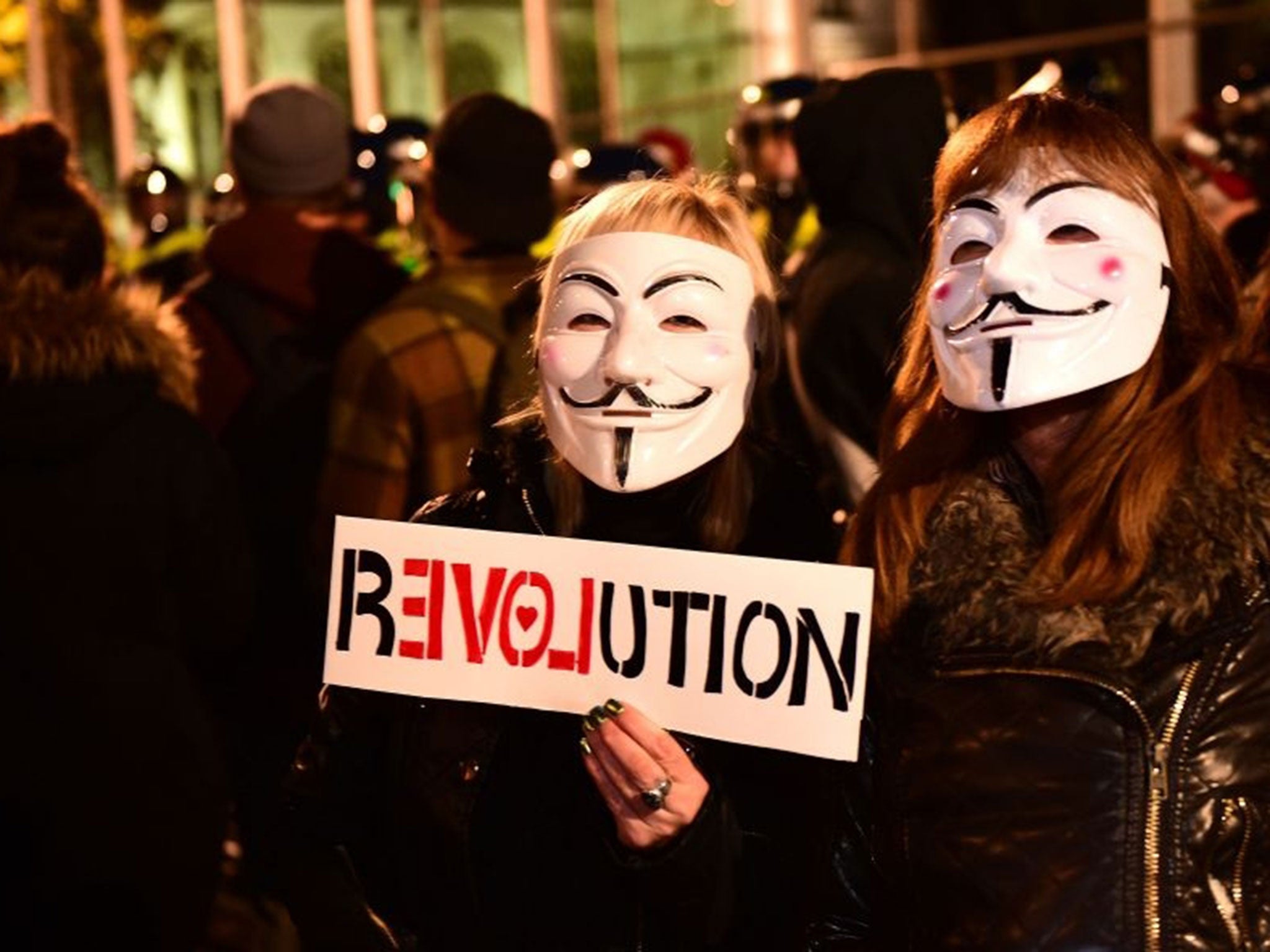Hacker, Hoaxer, Whistleblower, Spy by Gabriella Coleman, book review: Getting right to the heart of the global hacker movement
Her book is frustratingly inaccessible to those who would like to learn more about the inner-workings of the group and its members behind their Guy Fawkes masks

With the recent spate of nude celebrity photo leaks, and the rise of 4Chan into everyday consciousness, a book charting the history of hacking group Anonymous couldn’t be more timely.
Gabrielle Coleman, an anthropology academic at McGill University, has dedicated the past four years to researching the movement, hanging out on its various online forums for hours on end, speaking to notorious hackers and becoming personally immersed in Anonymous’s subculture. She relays various conversations she has had with a number of high profile hackers, including one known only to the world as “Weev”.
Her painstaking research takes the reader right into the heart of the group, where she begins explaining the history of the broad movement of hackers known to the outside world as Anonymous. The group first began its involvement in “hacktivism” via a series of attacks against the Church of Scientology, and it then went on take down Paypal’s site in protest against its blocking of funding to WikiLeaks, and would later become instrumental in the uprising in Tunisia.
The book illuminates the various guises Anonymous has adopted from its inception in 2008, when “Project Chanology” sought to take down Scientology. Since then the movement has splintered into a number of groups, including some that have risen up in opposition to one another. One of the key rifts between the groups, Coleman explains, was when one arm of Anonymous began a strand of hacktivism that involved breaking the law. The group, known as “AnonOps”’, turned its back on the perverse fun-seeking Pirate Party, stating: “We are not concerned with legality, but with legitimacy”.
In pictures: Million Mask March in London
Show all 12Coleman is critical of how Anonymous has been perceived by the media, stressing that the group is not solely made up of white, young, disillusioned males living in north America. She speaks to female hackers – even going so far as to share a hotel room with one at a conference – and also sheds light on the Tunisian hacker “Adnon” who helped persuade Anonymous to expose his country’s government at the beginning of the Arab Spring.
Yet there is a sense throughout the book that Coleman’s research has brought her too close to Anonymous, and she is unable to distance herself to make objective claims about the movement. She admits she became aligned to the group during its role in the Tunisian uprising, using the word “we” passionately when talking about Anonymous’s actions against the government. Her language is often inward looking, and hard for the outsider to tackle. Phrases such as “DDoSing”, “doxing” and “IRC log conversations” are peppered throughout, with the presumption that readers will have prior knowledge of internet lingo.
The book’s academic phrasing makes it even harder to understand, and it often reads like an extended version of a thesis, with Coleman making tangential comments comparing Anonymous’ s aims to “the trickster figure of Dionysian” or the “Bakhtinian carnivalesque”. This is made all the worse when she then tries to appeal to a mass audience and, rather like a lecturer trying to appear “down” with their students, uses phrases such as “LOIC was about as safe as a torn condom”.
Coleman is without doubt one of the biggest authorities in the world on the subject of Anonymous, but her book is frustratingly inaccessible to those who would like to learn more about the inner-workings of the group and its members behind their Guy Fawkes masks. Her criticism of journalists who have misrepresented Anonymous would seem more valid if she were able to put forward a more lucid and objective version herself.
Subscribe to Independent Premium to bookmark this article
Want to bookmark your favourite articles and stories to read or reference later? Start your Independent Premium subscription today.

Join our commenting forum
Join thought-provoking conversations, follow other Independent readers and see their replies